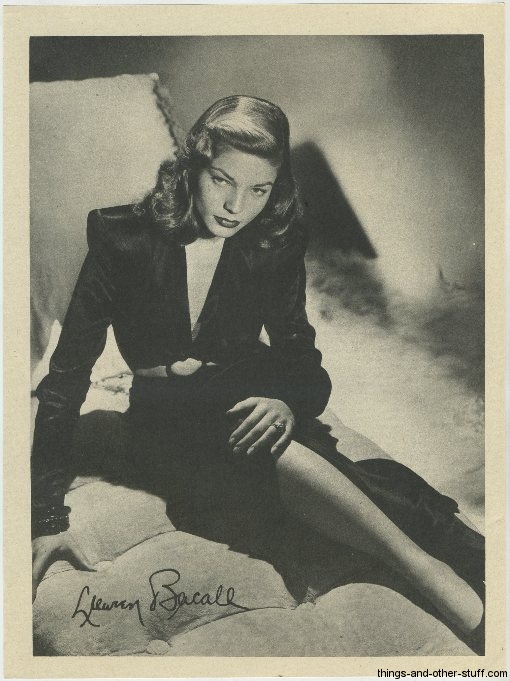 I was about halfway through The Ragman’s Son
I was about halfway through The Ragman’s Son when I posted my TCM Star of the Month Kirk Douglas article. Finished it just a few days ago. I enjoyed it quite a bit and can see why it was the hit it was back when it was first published in 1988.
Kirk Douglas writes about his entire life and career through that time, his story concluding with a big dash of mortality after he’s had a pacemaker installed at age 70. Douglas tells a lot in The Ragman’s Son, perhaps a bit too much, but if you’re looking for a few juicy sex stories Ragman will satisfy you.
Kirk Douglas, as presented in his own words in The Ragman’s Son, is a pretty complicated figure. It’s a very honest look at Douglas the man, a person who I’m not quite sure how much I like or dislike. It’s not that Douglas left any question about his personality, it’s just that the idea of how I actually feel about him is somewhat muddled. Douglas comes across as extremely human, much more flesh and blood person than Hollywood superstar, and that’s refreshing. I respect him. Did I like him? Not sure.
Douglas goes out of his ways to acknowledge his weaknesses, especially women. He admits to doing some pretty rotten things to those he’s been with along the way. That said, he probably puts too much blame on himself, especially when trying to sort out his more extended and deeper relationships. And that is the greater overall picture of Douglas, he carries a lot of guilt and he spends a good deal of The Ragman’s Son beating himself up over it.
While acknowledging that guilt throughout this memoir we get perhaps an unintentional bit of honesty repeated over and over again. Douglas generally beats up the target of his guilt before explaining how terrible he feels about his treatment of others. This goes for parents, children and lovers alike.
 He offers a lot of praise for friends and professional contacts as well, but not before he knocks the recipient down a few pegs first. He dings several this way including Nancy Reagan, Elia Kazan, Walter Matthau, John Frankenheimer, and even Lauren Bacall, who helped get Douglas his start.
He offers a lot of praise for friends and professional contacts as well, but not before he knocks the recipient down a few pegs first. He dings several this way including Nancy Reagan, Elia Kazan, Walter Matthau, John Frankenheimer, and even Lauren Bacall, who helped get Douglas his start.
On page 76: “As far as I’m concerned Lauren Bacall can do no wrong.” But on page 149 he’s somewhere between teasing and scolding her for inviting him to a club that doesn’t admit Jews as members. Terrible, yes, but did that need to be in the book at least 30 years after the invitation was extended? By page 301 when he sent the script for The Last Sunset to Bacall: “Betty’s reaction was strange. She was indignant. She berated me for even submitting the script to her.” Douglas might not be a guy that you want to have owe you one.
Douglas describes in detail the meetings that led to putting blacklisted writer Dalton Trumbo’s name on the Spartacus script. Given the history behind Trumbo’s blacklisting it’s somewhat ironic the kick Kirk gets out of naming names in retelling this tale. When discussing who they were going to credit on the script Douglas is absolutely disgusted when director Stanley Kubrick “jumped in with his solution. ‘Use my name.'”
Then, after breaking the blacklist by giving credit to Trumbo, Douglas pouts over Otto Preminger calling a press conference to publicly announce Trumbo as the writer of Exodus. He calls attention to this on pages 296 and again on page 351 of my edition of The Ragman’s Son. Once would have sufficed. The way the story is told makes it a lot more about Kirk Douglas, or even Preminger or Kubrick, than it does Dalton Trumbo. Kirk’s book, Kirk’s story.
In telling-all Douglas can sometimes come off as petty as in the case of friends like Bacall; vindictive in the cases of those he actually didn’t even like but begrudgingly respected. The latter group is typically composed of almost every film director he ever worked with.
It all makes for very interesting reading, but again, leaves us with a complicated storyteller. Honest? Duplicitous? Certainly interesting! Despite all the things I didn’t like about Douglas, believe it or not, there’s plenty here to like about the guy. He tells his story warts and all, it’s just he gives everyone else’s warts equal airtime as well.
I can only hope that writing The Ragman’s Son was a cathartic experience for Douglas and that the passing of time has helped cool his anger and heal his guilt.
The Ragman’s Son is well-written, funny and irritating often from one paragraph to the next. It provides a detailed history of Douglas’ childhood and youth, details of how and why he began acting, and a behind the scenes look at Kirk Douglas at work and play. He does a lot of both.
[phpbaysidebar title=”Kirk Douglas on eBay” keywords=”Kirk Douglas” num=”4″ category=”45100″ siteid=”1″ sortorder=”EndTimeSoonest” minprice=”29″ id=”2″]


Leave a Reply